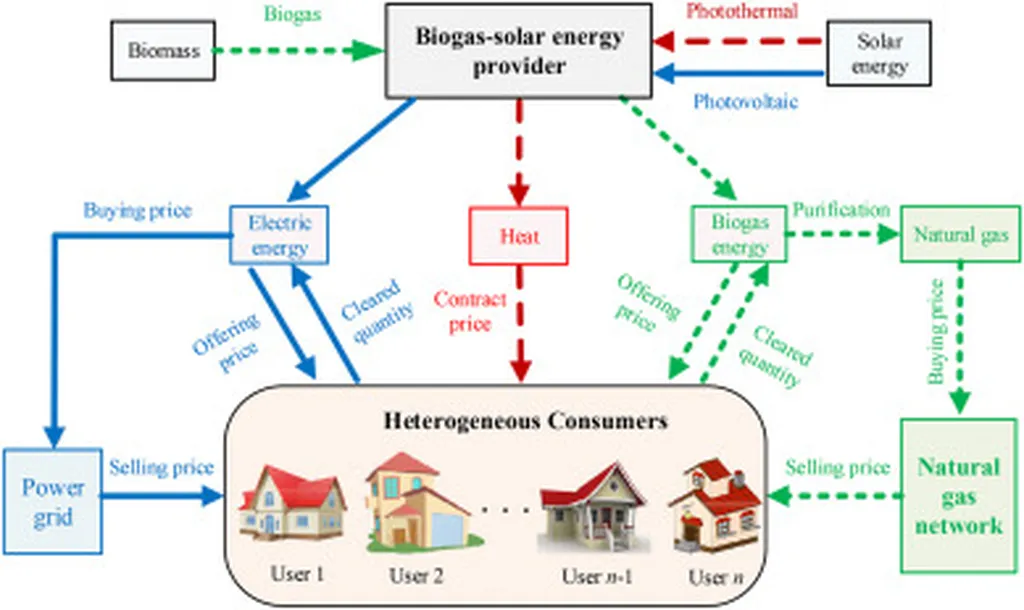In the rapidly evolving landscape of energy systems, a groundbreaking approach to multi-energy trading has emerged, promising to reshape how small-scale energy systems interact and optimize their operations. Researchers, led by Jingwei Hu from the College of Information Science and Engineering at Northeastern University in Shenyang, China, have introduced an aggregative game approach to facilitate two-way multi-energy trading among “Weenergies” (WEs)—small-scale energy systems within the energy internet.
Traditional energy trading models in smart grids often rely on microgrids, but the energy internet introduces a more decentralized paradigm with WEs. The challenge, however, lies in the physical constraints of energy transmission. “Most previous works ignored the fact that energy trading isn’t like ordering a package online; energy must travel through a fixed physical topology,” explains Hu. “This oversight increases scheduling complexity and transmission costs.”
To address this, Hu and his team proposed an aggregative game framework that allows WEs to engage in two-way multi-energy trading while considering the physical constraints of energy transmission. The game-theoretic approach ensures that each WE only needs to communicate with its neighbors, reducing communication burden and enhancing information security. “This distributed process is not only efficient but also secure, as it minimizes the need for centralized data exchange,” Hu notes.
The researchers also developed a multi-energy transmission optimization model to determine the most cost-effective transmission paths for energy. This model is crucial for minimizing transmission costs and improving overall system efficiency. To further enhance reliability, they designed a receding horizon control algorithm that accounts for the real-time fluctuations of renewable energy sources and load demands.
The effectiveness of this approach was validated through simulations involving five connected WEs, demonstrating its potential to handle complex multi-energy trading scenarios efficiently. The findings were published in the Chinese Society for Electrical Engineering’s Journal of Power and Energy Systems, a leading publication in the field.
The implications of this research are significant for the energy sector. By optimizing energy trading and transmission, this approach can reduce costs, improve system reliability, and enhance the integration of renewable energy sources. “This work lays the foundation for more intelligent and efficient energy systems,” says Hu. “It’s a step towards a more sustainable and resilient energy future.”
As the energy internet continues to evolve, the aggregative game approach could become a cornerstone for decentralized energy trading, shaping the future of energy markets and infrastructure. The research not only addresses current challenges but also paves the way for innovative solutions that will drive the energy sector forward.

